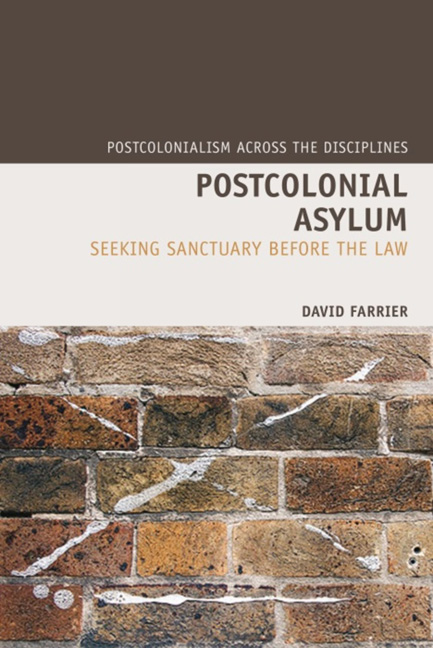3 - Be/held: Ban and Iteration
Summary
She is both the law and its transgression.
Toni Morrison, 1993 Nobel LectureBe/held
Salman Rushdie's The Satanic Versesfamously opens with the miraculous transformation of two immigrants into figures of the divine and diabolical as they fall from the exploded fuselage of a jumbo jet. Their descent inaugurates an extended reflection on what is perhaps the most insistent question posed by migrant experience in postcolonial studies: by what means does newness arrive in the world? Echoing Rushdie, Graeme Millar's 2006 audio-visual installation Beheldwas inspired by accounts of migrants who have fallen to their deaths from the undercarriage of aircraft. These include Mohamed Ayaz from Pakistan, who fell from a Boeing 777 into a Homebase car park in Richmond in 2001, and Alberto Vazquez Rodriguez and Michael Fonseca, Cuban teenagers who fell into a field in Surrey near Gatwick airport. Miller took recordings of ambient sound and photographs of the sky above the ten locations where migrants had previously fallen. The images were then transferred to ‘ten fragile glass bowls of sky’. Visitors to the installation were encouraged to handle the bowls, which activated the sound recordings. The absence of the bodies that marks each site as the subject of several incursions (of the immigrants themselves; deterritorialized sovereign power; or Millar's camera and the viewer's gaze) also establishes a sense of border-consciousness often far away from the recognized border, in the most prosaic locations. Whereas in Rushdie's novel the descent of Gibreel and Saladin is the basis for multiple ‘fusions, translations [and] conjoinings’, Millar's fallen migrants are banned subjects, forced to undertake lethally dangerous journeys by the state's reproduction of illegality.
The tactile nature of Millar's project raises difficult questions about relationality and proximity, and about the choice to engage (or not) with those who are abandoned to necropower but nonetheless held by the law. Most significantly, in challenging how we should interpret how those who are subject to the sovereign ban are heldin its grip, it revises the way the ban reproduces asylum seekers as abject.
Agamben's description of the sovereign ban, to be subject to which does not mean simply to be excluded but to be ‘abandoned[…] exposed and threatened on the threshold [between] life and law’, presents us with a vision of law and sovereignty that can comfortably operate within the indistinct space of the threshold.
- Type
- Chapter
- Information
- Postcolonial AsylumSeeking Sanctuary Before the Law, pp. 92 - 123Publisher: Liverpool University PressPrint publication year: 2011



